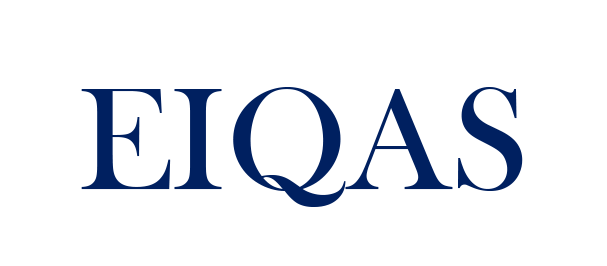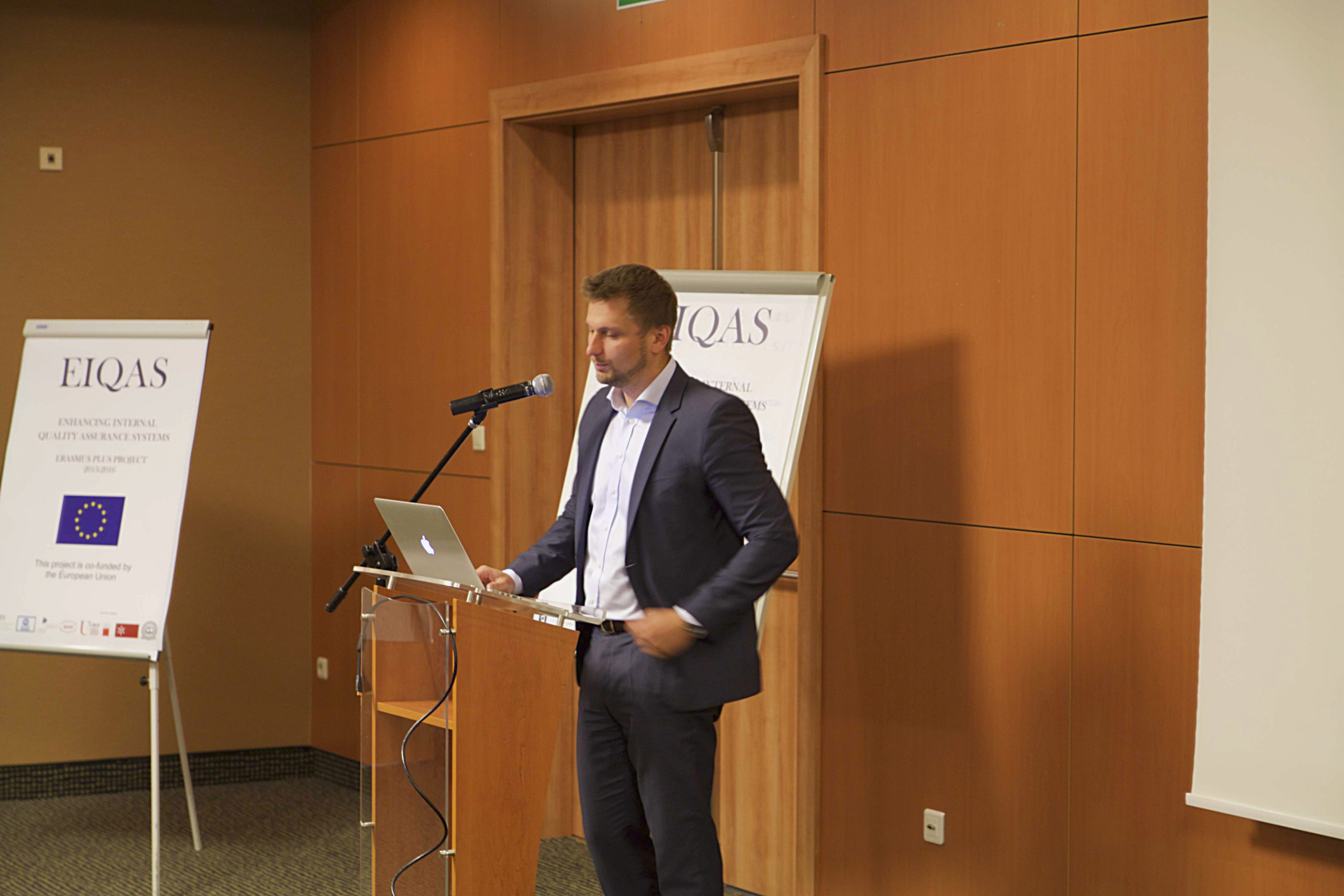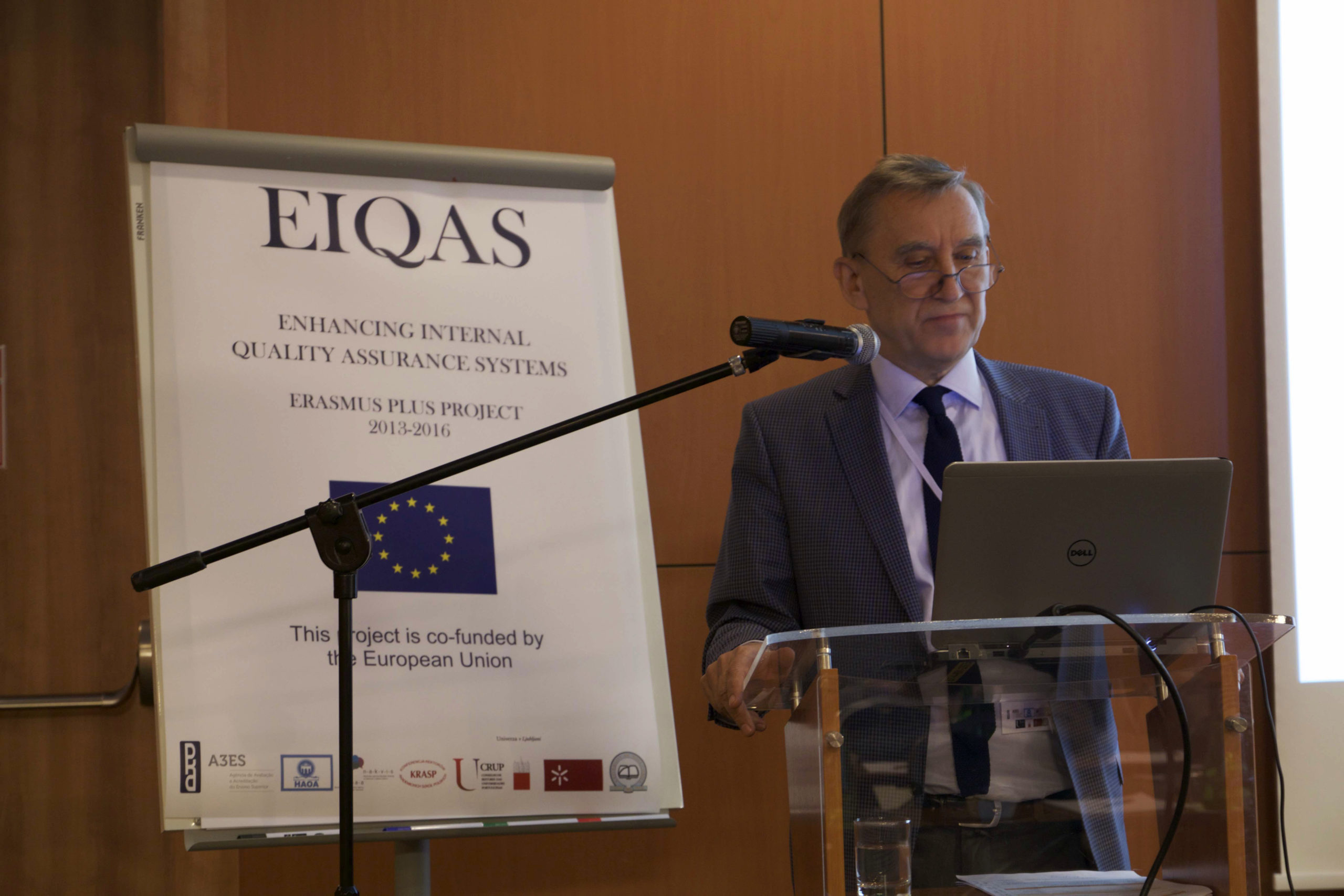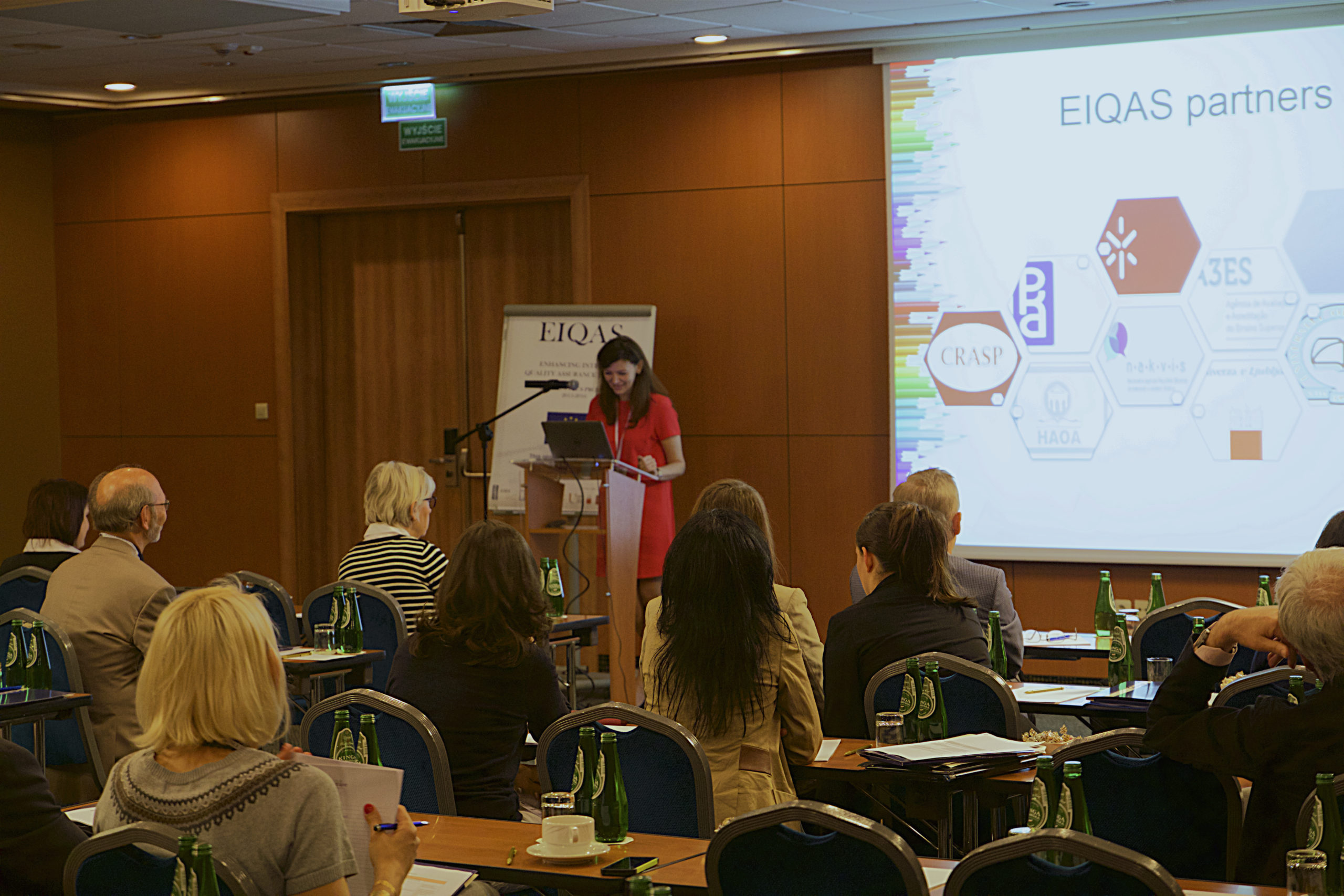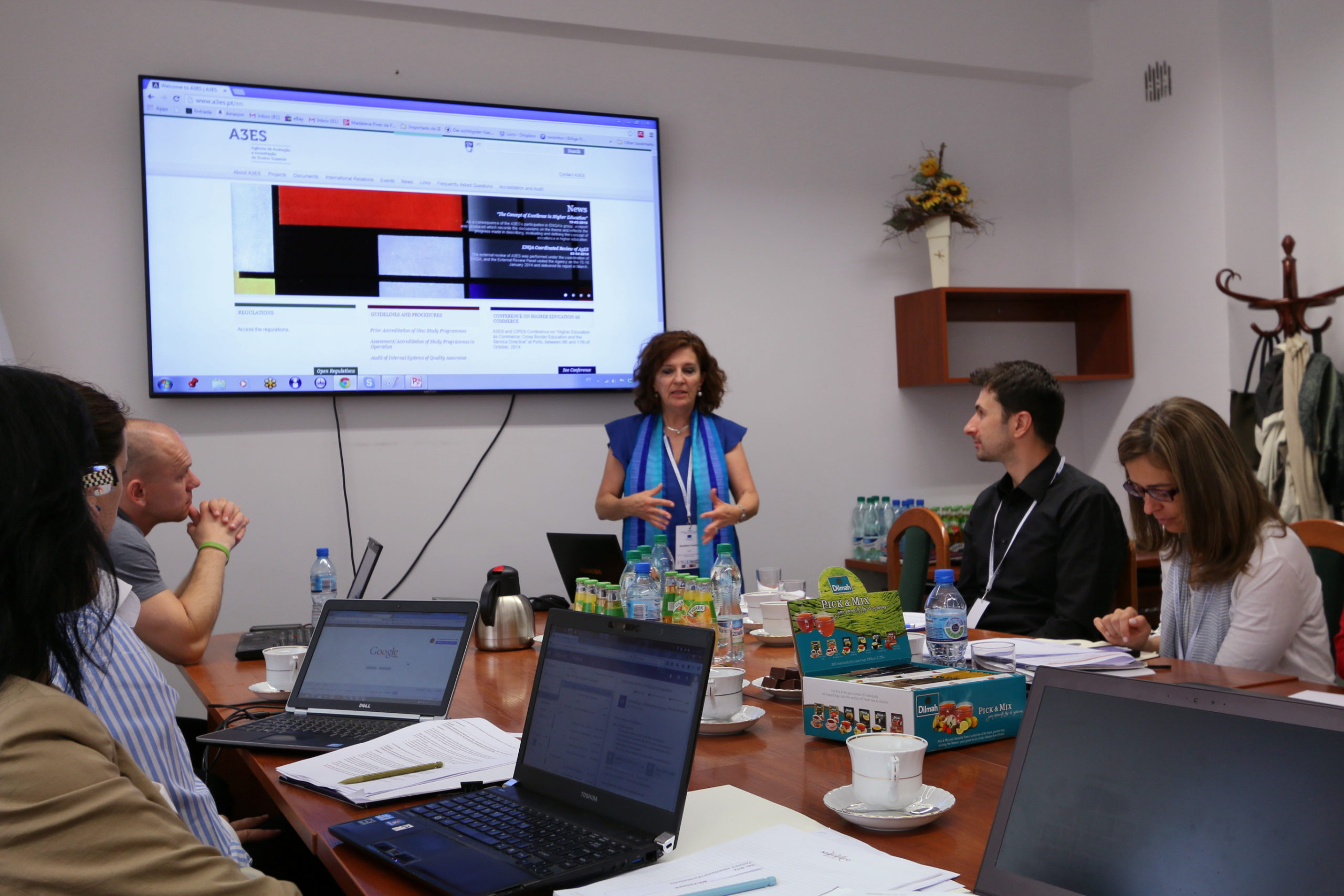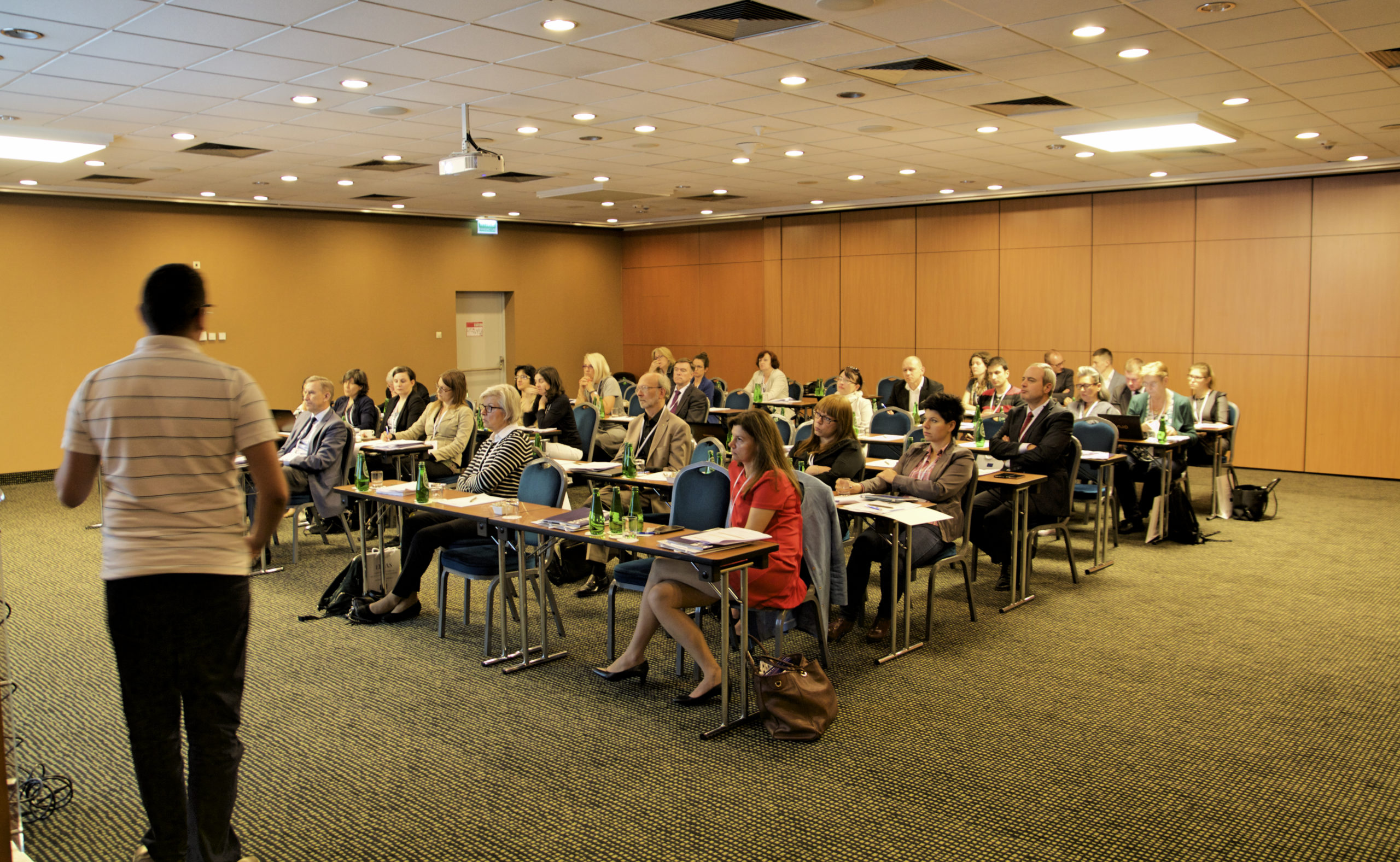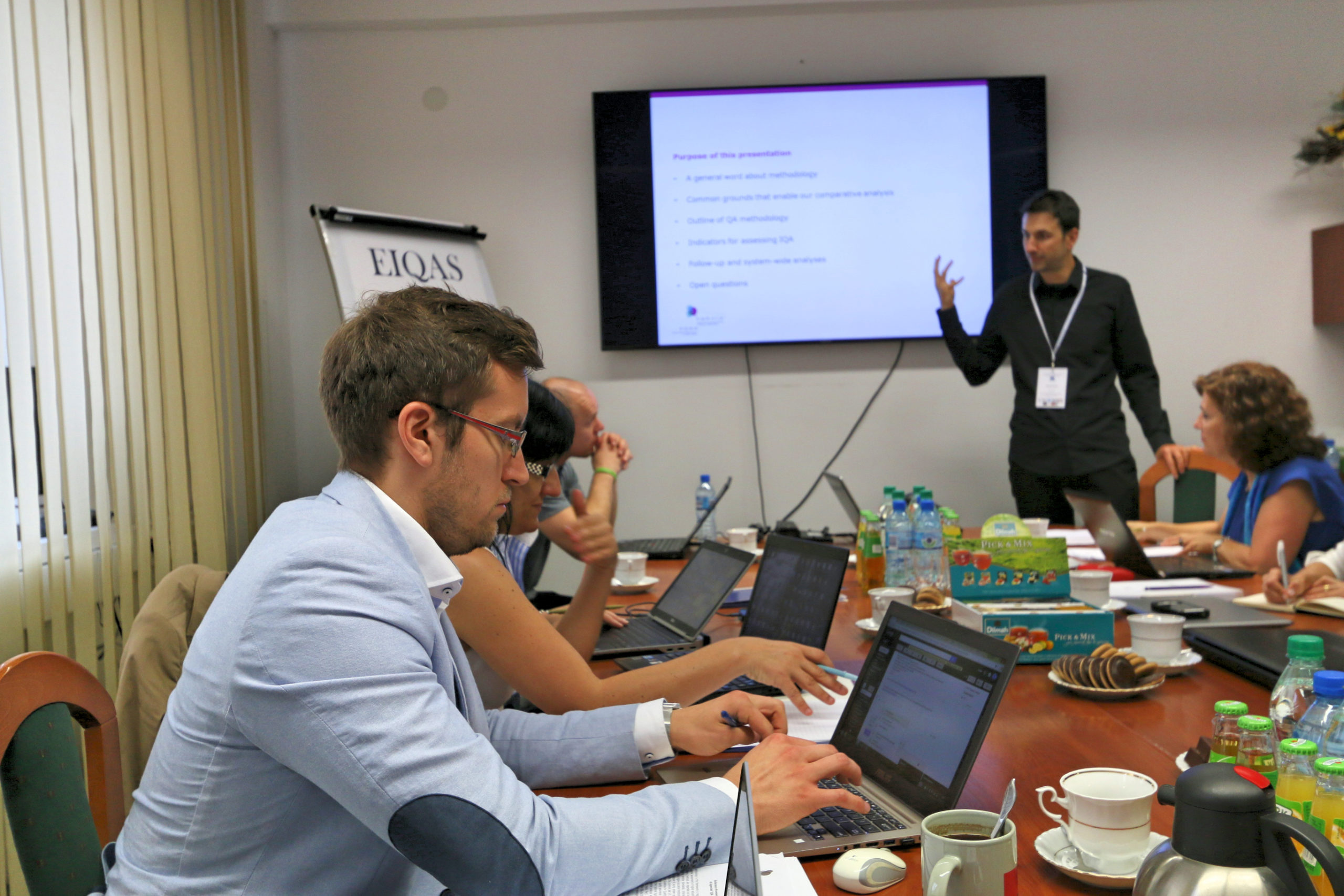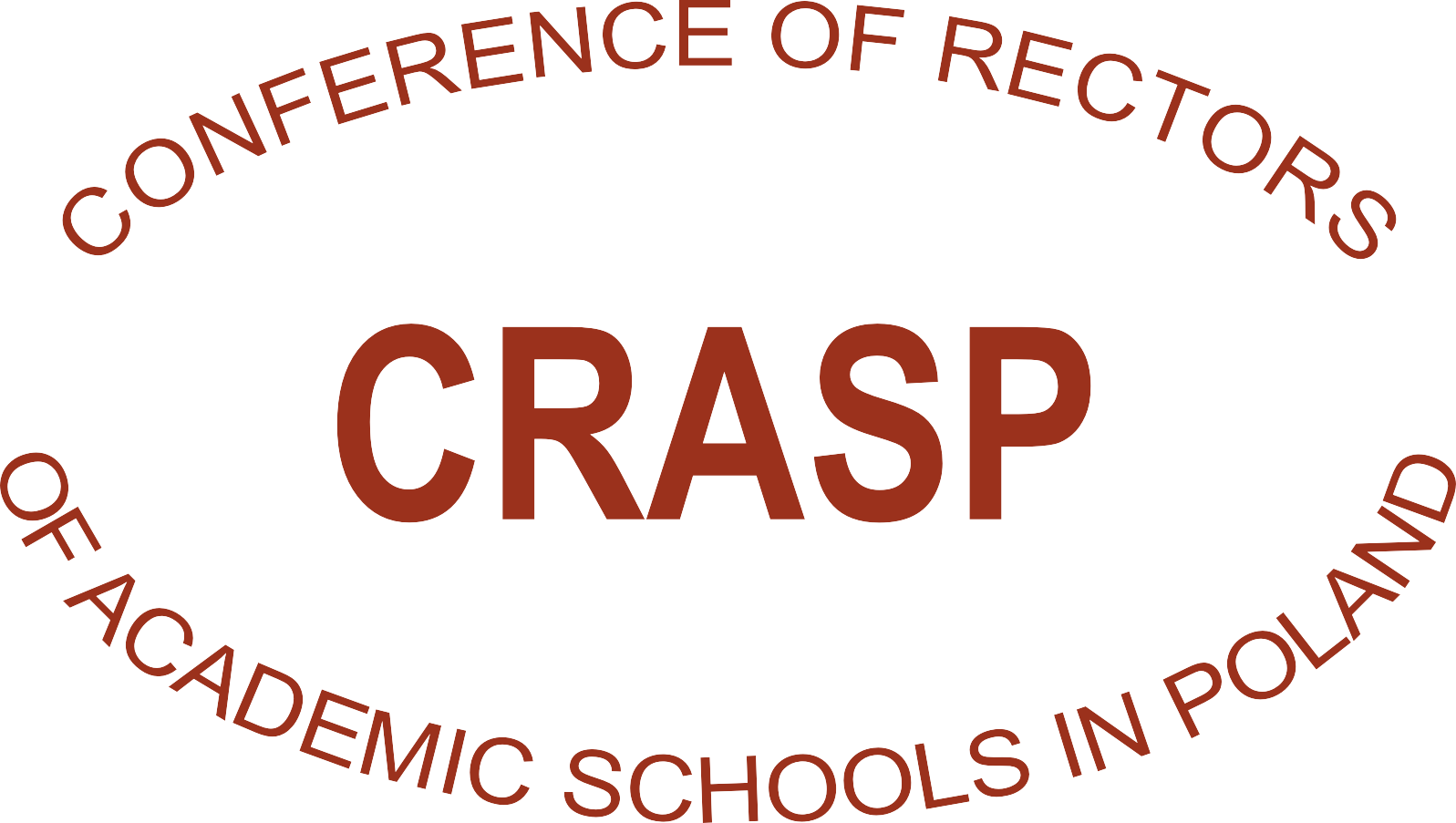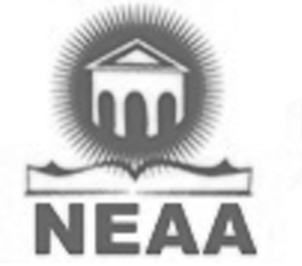for technical reasons, we inform you that we had to change the website address from eiqas.com to eiqas.com.pl


Summary
Recent European reports on QA show that HEIs have made progress in establishing internal quality assurance (IQA) systems based on ENQA’s European Standards and Guidelines (ESG) for QA in the EHEA, but they need practical advice on the interpretation of the ESG 2015 and support in further development of IQA. The progress in the implementation of IQA systems varies greatly among HEIs in the four countries participating in the project and many of them are yet to have fully-fledged systems in place. The QA Agencies in the four countries are committed to enhancing their methodologies for the assessment of IQA systems as part of their external evaluations based on the exchange of good practice and strengthening their cooperation with a view to exchanging experts. The ENQA-coordinated external review of the Polish Accreditation Agency (PKA) in 2014 recommended that the Agency should produce a Guide to IQA/ Code of Good Practice in IQA for HEIs.
READ MORE
Against this background, the project ‘Enhancing Internal Quality Assurance Systems’ (EIQAS) had two objectives:
1) to increase the capacity of higher education institutions in the participating countries to develop internal quality assurance by enhancing their awareness and understanding of Part 1 of the ENQA European Standards and Guidelines and identifying, developing and disseminating good innovative practice in internal quality assurance; and
2) to increase the capacity of the participating QA agencies in external quality assurance by comparing their methodologies for the assessment of internal quality assurance and exchanging and developing good practice in IQA assessment.
EIQAS brought together four QA Agencies, PKA (Poland), NEAA (Bulgaria), A3ES (Portugal) and SQAA (Slovenia), the Polish and Portuguese Rectors’ Conferences (KRASP and CRUP) and 3 HEIs from Slovenia and Portugal (University from Minho, Nova Gorica and Ljubljana). The main activities of the project included:
– a comparative analysis of the QA Agencies’ methodologies for the assessment of IQA systems to identify good and transferrable practice;
– a survey on IQA and the ESG to identify the main problems faced by HEIs in IQA and in the interpretation of Part 1 of the ESG;
– three Training Events (C1, C2, C3): a seminar on IQA and the ESG for the QA Agencies and HEIs; training for the QA Agencies’ experts involved in external evaluations; and special training for students-experts involved in the QA Agencies’ external evaluations;
– the production of Training Event 1 publications on IQA and Part 1 of the ESG;
– dissemination activities at institutional, national and European levels, including multiplier events designed not only to promote the project’s outputs but also to share the expertise gained by project participants.
The project produced the following main outputs:
– a reference framework for comparative analysis of the QA Agencies’ methodologies for assessing IQA systems, and a comparative report on their methodologies identifying good transferrable practice;
– country reports and a cross-country report on HEIs’ main problems in the implementation of IQA systems and the interpretation of Part 1 of the ESG;
– a Guide to IQA for HEIs, including general guidelines, practical advice on each Part 1 ESG and good practice examples from each of the four countries under each ESG;
– a Students Guide to ESG focusing on issues under each Part 1 ESG which are specifically relevant to students; and
– a report proposing a framework for further training of QA Agency experts and arrangements for the exchange of experts among the Agencies.
The project had/ have short- or medium-term impact on the participating QA Agencies in terms of their IQA assessment methodologies improved through the integration of good practice tested in the other countries, greater professionalism of the Agencies’ experts and their enhanced awareness of European approaches to the assessment of IQA, and greater internationalisation of the Agencies through future exchange of experts.
While establishing fully-fledged IQA systems at HEIs is a long and challenging process, the project’s main training events, the two Guides were produced and multiplier events were expected to contribute in the medium term to improving the existing systems in terms of the increased awareness of IQA among HEI staff and students, the overall design of systems and the integration of all elements of Part 1 of the ESG in the four participating countries.
As the outputs of EIQAS were distributed among European QA and HE organisations and QA Agencies, the project is likely to have impact at European level in terms of wider promotion and better understanding of Part 1 of the ESG and related good practice, mutual understanding of approaches to IQA and to the assessment of IQA as part of external quality assurance processes.
Project’s results
O3 Final questionnaire on IQA and ESG
Description
An online questionnaire-based survey on IQA and ESG was carried out among HEIs in the four participating countries. The questionnaire included 38 (30 close-ended / multiple choice and 8 open-ended) questions. It was divided into two parts: general questions (Section I) and more specific questions (Section II) about internal quality assurance systems and the ESG. All questions in Section I and a number of questions in Section II referred to the level of the institution as a whole; where differences between fields of study may be relevant in other questions, this is reflected in multiple choice answers. The questions in Section II were structured according to Standards of Part 1 of the ESG.
Contents
O4 Country report presenting national survey findings on IQA and ESG among HEIs (Poland)
Description
Each of the four participating countries (Poland, Portugal, Bulgaria, Slovenia) produced a national report presenting findings from online questionnaire survey on IQA and the ESG. The reports included statistical sections and analytical sections discussing in greater detail findings under each of the three sets of questions in the questionnaire (1) main problems faced by HEIs in the implementation of IQA systems and the interpretation of Part 1 of the ESG; 2) HEIs’ awareness of the ESG, and the integration of Part 1 ESG within their IQA systems; 3) standards of Part 1 of the ESG where more detailed practical advice would be most useful). Country reports provided a basis for a cross-country report.
Contents
O5 Cross-country summary report on findings from an online questionnaire survey on IQA and ESG among HEIs
Description
Cross-country report on findings of the online questionnaire survey on IQA and the ESG among HEIs provided a comparative overview of findings for each of the four countries. Like country reports, it includes statistical and analytical sections covering the main sets of questions of the survey.
Contents
O6 Training Event 1 publication&Presentations on IQA assessment&Presentations on ESG&IQA on Training Event 1&Report summarizing workshop discussion
Description
The publication in an electronic version was issued after Training Event 1 (Seminar on IQA and the ESG). It includes: all presentations on the QA Agencies’ methodologies of IQA assessment, findings of the online survey on IQA and ESG among HEIs, presentation on Part 1 of ESG, and examples of IQA systems given at the seminar; and summaries of discussions at seminar workshops on ESG Part 1.
Contents
O12 Final methodology for the identification of good practice in IQA&Description of examples of good practice in IQA
Description
The methodology for the identification of good practice in IQA is based on a definition of good practice adopted or developed after an analysis of available definitions collected by the Partnership. It defines a set of criteria for good practice covering, among other things, required characteristics (e.g. standard compliant, innovative, repeatable, sustainable, etc.) on the one hand and benefits identified and proven value on the other hand. The methodology takes into account outcomes of external evaluations conducted by the participating QA Agencies. . The final methodology provides a basis for each of the participating countries to select good practice examples for each standard of Part 1 ESG which are included in the Guide to IQA.
Contents
O14 Guide to IQA
Description
The Guide to IQA for HEIs is based on Part 1 of the ESG and includes examples of good practice in IQA from each country. Introductory parts includes a glossary of key terms and provides advice on the development and operation of IQA systems, including the involvement of stakeholders and key elements to be covered. The following chapters are structured according to the revised ESG. They include the ESG as published by ENQA and proposed interpretation of the ESG together with practical advice. Both the overview chapter and those devoted to each of Part 1 ESG contains examples of good practice. Special attention was paid to most challenging aspects of IQA and of the ESG as identified by the online survey on IQA and the ESG.
The Guide is not intended as a prescriptive document laying down requirements for HEIs. It only provides guidance and good practice which may be useful to HEIs struggling to implement fully-fledged IQA systems, and where doubt exist over the interpretation of the ESG.
Contents
O15 Student Guide to ESG
Description
The Student Guide to the ESG drew on the Guide to IQA as providing general guidance on the interpretation of Part 1 of the ESG and on the exchange of expertise and experience among students during Training Event 2 (Training for Students) in Ljubljana in 2015 for students working as experts for the partner QA Agencies. It focused on those elements of each Part 1 of ESG which are specifically relevant to students. Like the Guide to IQA, the Student Guide is structured according to the ESG and includes good practice examples from each country under each ESG. Good practice examples was selected on the basis of participating students’ experience of both their involvement in IQA at HEIs and their participation in external evaluation panels to combine IQA and EQA perspectives.
Contents
O16 Report on a draft framework for further training of experts and arrangements for exchange of experts among QA agencies
Description
The report was based on discussions at Training Event 3 (Training for Experts) in Lisbon in 2016 which brought together external experts working for the partner QA Agencies. The report discusses lessons learnt by experts during the Training Event 3 in Lisbon (incl. site visits to HEIs and the Portuguese QA Agency A3ES) and conclusions on the prospects for the internationalisation of external evaluation processes (no substantial differences were identified in procedures held by QA agencies – see comparative report on IQA’s assessment methodology adopted by QAA’s agencies) in the context of planned exchange of experts among the partner QA Agencies. Besides the lesson learnt from two other trainings (Training Event 1 in Warsaw and Training Event 2 in Ljubljana) was reflected in the report as well.
O4 Country report presenting national survey findings on IQA and ESG among HEIs (Portugal)
Description
Each of the four participating countries (Poland, Portugal, Bulgaria, Slovenia) produced a national report presenting findings from online questionnaire survey on IQA and the ESG. The reports included statistical sections and analytical sections discussing in greater detail findings under each of the three sets of questions in the questionnaire (1) main problems faced by HEIs in the implementation of IQA systems and the interpretation of Part 1 of the ESG; 2) HEIs’ awareness of the ESG, and the integration of Part 1 ESG within their IQA systems; 3) standards of Part 1 of the ESG where more detailed practical advice would be most useful). Country reports provided a basis for a cross-country report.
Contents
O4 Country report presenting national survey findings on IQA and ESG among HEIs (Bulgaria)
Description
Each of the four participating countries (Poland, Portugal, Bulgaria, Slovenia) produced a national report presenting findings from online questionnaire survey on IQA and the ESG. The reports included statistical sections and analytical sections discussing in greater detail findings under each of the three sets of questions in the questionnaire (1) main problems faced by HEIs in the implementation of IQA systems and the interpretation of Part 1 of the ESG; 2) HEIs’ awareness of the ESG, and the integration of Part 1 ESG within their IQA systems; 3) standards of Part 1 of the ESG where more detailed practical advice would be most useful). Country reports provided a basis for a cross-country report.
Contents
O4 Country report presenting national survey findings on IQA and ESG among HEIs (Slovenia)
Description
Each of the four participating countries (Poland, Portugal, Bulgaria, Slovenia) produced a national report presenting findings from online questionnaire survey on IQA and the ESG. The reports included statistical sections and analytical sections discussing in greater detail findings under each of the three sets of questions in the questionnaire (1) main problems faced by HEIs in the implementation of IQA systems and the interpretation of Part 1 of the ESG; 2) HEIs’ awareness of the ESG, and the integration of Part 1 ESG within their IQA systems; 3) standards of Part 1 of the ESG where more detailed practical advice would be most useful). Country reports provided a basis for a cross-country report.
Contents
O7 Comparative report on the methodologies of IQA assessment
Description
Comparative analysis of methodologies that the participating QA Agencies use in assessing IQA systems at their HEIs. A comparative report is based on the reference framework for comparative analysis of the QA Agencies’ methodologies for the assessment of IQA, presentations given by the QA Agencies and conclusions from a discussion.
Contents
Gallery
Dissemination Events
Seminar 1
Dissemination Event in Lisboa
Seminar 2
Dissemination Event in Sofia
Seminar 3
Dissemination Event in Ljubljana
Seminar 4
Dissemination Event in Warsaw
